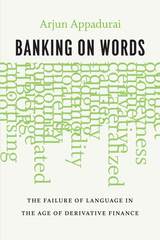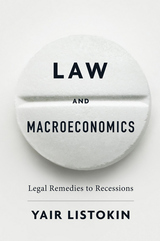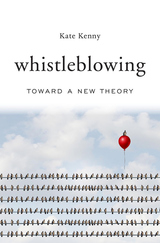
Appadurai moves in four steps through his analysis. In the first, he highlights the importance of derivatives in contemporary finance, isolating them as the core technical innovation that markets have produced. In the second, he shows that derivatives are essentially written contracts about the future prices of assets—they are, crucially, a promise. Drawing on Mauss’s The Gift and Austin’s theories on linguistic performatives, Appadurai, in his third step, shows how the derivative exploits the linguistic power of the promise through the special form that money takes in finance as the most abstract form of commodity value. Finally, he pinpoints one crucial feature of derivatives (as seen in the housing market especially): that they can make promises that other promises will be broken. He then details how this feature spread contagiously through the market, snowballing into the systemic liquidity crisis that we are all too familiar with now.
With his characteristic clarity, Appadurai explains one of the most complicated—and yet absolutely central—aspects of our modern economy. He makes the critical link we have long needed to make: between the numerical force of money and the linguistic force of what we say we will do with it.

High-profile case studies provide compliance professionals with a deep, holistic understanding of modern-day money laundering to better detect and deter it
Money laundering is a serious crime that presents a heightened, yet underrated, global threat. Although often thought of as a victimless crime, money laundering significantly impacts the global financial system, which leads to further crime, corruption, human exploitation, and environmental degradation and causes tremendous human suffering, especially in the most impoverished populations. Recent advances in technology, communications, and globalization mean there are more illicit funds in circulation today than ever before. In order to catch these criminals and expose their underground networks, compliance professionals must learn to navigate an increasingly complex web of criminal activity.
In The Flow of Illicit Funds, Ola M. Tucker goes beyond the implementation of anti–money laundering compliance programs offered by most guides and provides professionals with a holistic understanding of the modern money laundering system. Using recent case studies, Tucker explains some of the most common money laundering techniques used by criminals today, describes the key role of the financial system in the disguise and transfer of illicit funds, and offers valuable insight into how financial institutions can protect themselves from being used as conduits for the movement of dirty money. The book concludes by offering suggestions to help compliance professionals better detect and deter money laundering.
Through this unique perspective, compliance professionals and students will gain a broader overall understanding of the process of money laundering and the techniques criminals commonly use, including valuable insight into how criminals find legal loopholes and manipulate the financial system.

A distinguished Yale economist and legal scholar’s argument that law, of all things, has the potential to rescue us from the next economic crisis.
After the economic crisis of 2008, private-sector spending took nearly a decade to recover. Yair Listokin thinks we can respond more quickly to the next meltdown by reviving and refashioning a policy approach whose proven success is too rarely acknowledged. Harking back to New Deal regulatory agencies, Listokin proposes that we take seriously law’s ability to function as a macroeconomic tool, capable of stimulating demand when needed and relieving demand when it threatens to overheat economies.
Listokin makes his case by looking at both positive and cautionary examples, going back to the New Deal and including the Keystone Pipeline, the constitutionally fraught bond-buying program unveiled by the European Central Bank at the nadir of the Eurozone crisis, the ongoing Greek crisis, and the experience of U.S. price controls in the 1970s. History has taught us that law is an unwieldy instrument of macroeconomic policy, but Listokin argues that under certain conditions it offers a vital alternative to the monetary and fiscal policy tools that stretch the legitimacy of technocratic central banks near their breaking point while leaving the rest of us waiting and wallowing.

Society needs whistleblowers, yet to speak up and expose wrongdoing often results in professional and personal ruin. Kate Kenny draws on the stories of whistleblowers to explain why this is, and what must be done to protect those who have the courage to expose the truth.
Despite their substantial contribution to society, whistleblowers are considered martyrs more than heroes. When people expose serious wrongdoing in their organizations, they are often punished or ignored. Many end up isolated by colleagues, their professional careers destroyed. The financial industry, rife with scandals, is the focus of Kate Kenny’s penetrating global study. Introducing whistleblowers from the United States, the United Kingdom, Switzerland, and Ireland working at companies like Wachovia, Halifax Bank of Scotland, and Countrywide–Bank of America, Whistleblowing suggests practices that would make it less perilous to hold the powerful to account and would leave us all better off.
Kenny interviewed the men and women who reported unethical and illegal conduct at major corporations in the run up to the 2008 financial crisis. Many were compliance officers working in influential organizations that claimed to follow the rules. Using the concept of affective recognition to explain how the norms at work powerfully influence our understandings of right and wrong, she reframes whistleblowing as a collective phenomenon, not just a personal choice but a vital public service.
READERS
Browse our collection.
PUBLISHERS
See BiblioVault's publisher services.
STUDENT SERVICES
Files for college accessibility offices.
UChicago Accessibility Resources
home | accessibility | search | about | contact us
BiblioVault ® 2001 - 2024
The University of Chicago Press









